First off, there are two charging options available for the Chevy Bolt: home сharging and Public Charging. We’ll discuss home charging in more detail below.
It’s important to note that you can buy a home charger (see our home EV Charger buying guide ), but it’s not necessary unless you plan on doing long-distance trips or live somewhere without easy access to public chargers. And although public chargers are free for most drivers, occasionally they do require payment or membership. For most people with regular daily driving needs, home charging is all you need – other than plugging into any standard 120v wall outlet which provides an extremely slow charge (see home EV Charger buying guide).
If you want to install a Level 2 charger at home, you have two options: You can either hardwire the charger directly into your electrical panel, or you can use a plug-in charging station.
Best plugin chargers for Chevy Bolt
- ChargePoint Home Flex 16 to 50 Amp • NEMA 14-50
- JuiceBox 32A • NEMA 14-50 Level 2 charger
- LEFANEV 32A • NEMA 14-50 EV charger
A plug-in charging station is less expensive than a hardwired charger, but you have to remember to unplug it when you’re not using it. This type of charging station also comes with a built-in circuit breaker, so you don’t have to worry about overloading your home’s electrical system. If you have more than one plug-in electric vehicle, you can use multiple charging stations at the same time.
Best hardwired chargers for Chevy Bolt
- #1 Chevy compatibleJuiceBox 40 Hardwired Smart EV Home Charging Station (40 Amp, 240 Volt, 25ft Cable), WiFi, Indoor/Outdoor charger, Energy Star & UL CertifiedGet a great dealFeb 19, 2026 4:15 PM
- $1,74900
- Get a great dealFeb 19, 2026 4:15 PM
- ChargePoint Home Flex WiFi Enabled EV Charger
- Lectron 240V 40 Amp Level 2 EV Charger
- Pulsar Plus Level 2 EV Charger
A hardwired charger is installed by a professional and is more expensive than a plug-in charging station. Once it’s installed, however, you never have to worry about forgetting to unplug your charger—it’s always on and ready to go. Plus, because it’s hardwired into your electrical system, you can use a higher wattage Level 2 charger (up to 10 kW) without having to upgrade your home’s electrical panel.

Chevrolet Bolt home сharging
There are two options available for home charging your Chevy Bolt: Level 1 Basic and Level 2 Fast. We’ll discuss both in more detail below. It’s important to note that you can buy a home сharger (see our home EV Charger buying guide ), but it’s not necessary unless you plan on doing long-distance trips or live somewhere without easy access to public chargers. And although public chargers are free for most drivers, occasionally they do require payment or membership. For most people with regular daily driving needs, home charging is all you need – other than plugging into any standard 120v wall outlet which provides an extremely slow charge (see home EV Charger buying guide ).
Level 1 Basic: This first electric car charger option allows you to charge your Bolt at home, or anywhere that has a 120-volt, three-prong outlet. To use it, just plug the connector into your Chevy Bolt and the other end into a standard 120v wall outlet. It will take about 12 hours to fully charge your Bolt using Level 1 charging.
Level 2 Fast: The 240-volt Level 2 charger is for your home or public charging stations and provides about 25 miles per hour of charge. To use it, just plug the connector into your Chevy Bolt and the other end into a standard 240v wall outlet (example NEMA 14-50) or a dedicated charging station. It will take about 4-6 hours to fully charge your Bolt using Level 2 charging.
How to choose a home EV charger?
When you’re looking to buy a home EV charger, there are a few things you’ll want to keep in mind. Let’s take a look at the 7 most important factors:
- The amperage of your electric vehicle (EV)
- The distance from the EV charger to the nearest charging station
- Ample power usage by local utility company
- Home size and layout
- Your desired level of installation (a DIY or professional service?)
- Amount of available space in front and back of your house for installation
- Your budget
Home charging equipment for EVs can vary widely depending on the specifications of the vehicle you own and where you live. The type of charger that’s best for your circumstances will depend on several factors, including what your local electric utility company offers in terms of rebates or incentives, if any; outlets available at your residence; how much you’ll be charging each night; and the speed at which you need to recharge. For most Chevrolet EVs, it’s highly recommended that you hire an electrician to install a 240V/50A AC circuit for your charging equipment if one doesn’t exist. You can read more about this in our previous article titled “The best and fastest home chargers for EVs“
How fast do you want to charge?
The speed of the charger is important if you want to get a full charge in a short amount of time. Home chargers typically come in three speeds: 3.6 kW, 7.2 kW, and 11 kW. If you have a Chevy Bolt, you’ll need a charger that can provide at least 7.2 kW of power.
How many plugs do you have on your electrical panel?
The amount of power your home electrical panel can provide is also important to consider when choosing a charger. If you don’t have enough space on your panel, you may need to upgrade it in order to use a high-powered charger.
Where would you like to place your electric vehicle charging station?
Where you put your home EV charger is important, too. You’ll want to make sure the location is easily accessible and close to an electrical outlet. Some people choose to install their home EV chargers near a parking spot or outer wall that gets sun exposure, so they can warm up the battery before driving.
How important is it that you have a safe and reliable charger?
The safety and reliability of your charger is obviously an important factor to consider when choosing a home EV Charger. Some home EV Chargers utilize 24/7 active temperature control and quad-helix windings to build up power quickly while preventing overheating problems. Other home EV Chargers also prevent over charging by automatically shutting off once it’s done powering your electric vehicle. Which leads us to our next point:
Is it true that an electric vehicle charging station will save me money?
Some home EV Chargers offer valuable savings as well as smart technology such as “smart charging” which allows you to schedule specific times for your charger to turn on and off. This can help you save energy and money.
What else can the charger accomplish?
Besides smart charging, home EV Chargers come with a variety of other smart features. Some chargers have built-in Wi-Fi that allows you to monitor your charging status or control your charger remotely. Other chargers come with timers that allow you to set charging times for specific days of the week.
How much does it cost to charge an EV?
The cost of a home EV Charger can vary depending on the type and speed of the charger. Prices typically start at around $500, but can go up to $1,500 or more for high-powered chargers. It’s important to keep in mind that home EV Chargers usually come with value-added benefits like smart features, Wi-Fi control, timers, safety shut-off and 24/7 active temperature control.
AeroVironment
If you’re looking to purchase a new electric vehicle and need a charging station, there are a few things you should know. While you can purchase a wall-mounted charging station, you may also want to consider purchasing an AeroVironment wall-mounted charger. Both these options will give you the convenience of charging your vehicle while staying in your home, and are designed to be compatible with your Chevy Bolt’s J1772 electrical connector.
The Chevy Bolt has a high-power charger, drawing over 32 amps at 240 volts, or 7.68 kW, according to the AeroVironment Chevy Bolt charging specs. A clamp-on ammeter can also be used to determine the Bolt’s current draw. It can charge at a high current without requiring a large discharge, starting at 32A at 90% state of charge and tapers off to 30A at full charge.
Chevrolet Bolt EV
If you’re interested in learning more about the new Chevy Bolt EV, here’s a quick guide. You can use it as a reference point when charging your electric vehicle. There are many different chargers available, so you can choose the one that works best for your needs. Also, you can find more information about the Bolt on its Facebook and Twitter pages. The Bolt is a great choice for families as it offers an incredible amount of cargo space.
The Chevrolet Bolt can also be recharged using Level 2 Home EV Chargers. This system requires a 240-volt appliance outlet. Level 2 Charging allows you to fully charge your Bolt’s battery overnight, giving you 9.5 hours of drivetime. Level 2 charging is even more effective when you use public charging stations. This cord adds about 39 miles per hour to your range, so you can use it at home and at work.
Public Charging: Chevy Bolt Public Charging
Public Charging is available at thousands of locations across the country, and is free for most drivers. To use it, just plug the connector into your Chevy Bolt and the other end into the charging port on the public charger. The time it takes to charge your Bolt will vary depending on the type of public charger and its current state of charge.
Charging your Chevy Bolt is a breeze – just follow these simple steps and you’ll be on your way! If you have any questions, feel free to contact us. We’re always happy to help.
Where to buy an EV charger?
You can buy home EV Chargers, extension cords, and J1772 adapters from a variety of different places, including Chevrolet dealerships, home improvement stores, and online retailers.
When you’re ready to buy a home EV Charger for your Chevy Bolt, be sure to consider the factors listed above. It’s important to find a charger that meets your needs and fits your budget.
We are here to welcome you with our EV charger installation
Contact us today. Our professional electrician service technicians will ensure your home EV Charger is installed safely and efficiently. We take pride in handling every home EV Charger installation with professional care – we know how important your Chevy Bolt EV Charger is to you.
Where is the cheapest place to charge Chevy Bolt?
| Home • 1.44KW OUTPUT (AC) | Blink • 50KW OUTPUT (DC) | Chargepoint • 62.5KW OUTPUT (DC) | |
|---|---|---|---|
| Chevrolet Bolt EV60 kWh | $5.4 | $15.12 | $3.24 |
| Chevrolet Bolt EV65 kWh | $5.85 | $16.38 | $3.51 |
| Chevrolet Bolt EV66 kWh | $5.94 | $16.63 | $3.56 |
See calculator for other options.
Comparison table
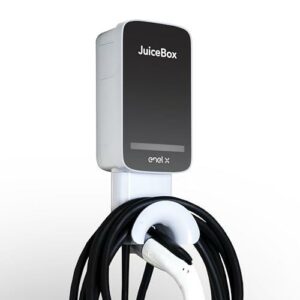 | 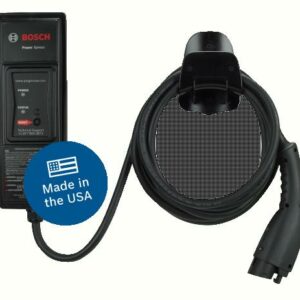 | 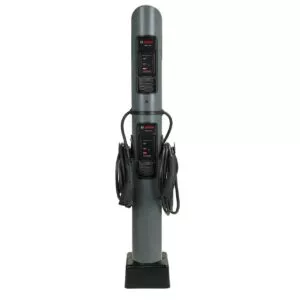 | 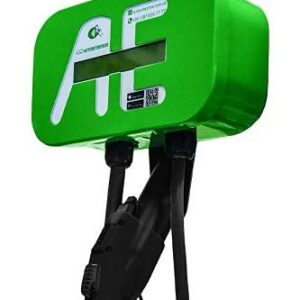 | 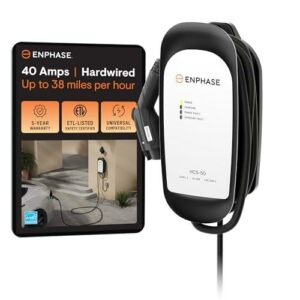 | |
| JuiceBox 40 Hardwired Smart EV Home Charging Station (40 Am... | Bosch Level 2 Hardwired EV Charging station (240 Volt, 18ft... | Bosch Automotive Equipment Bosch EV800 EV Dual Charge Stati... | AUTO ENTERPRISE Level 2 EV Charging station 12 kW (240 Volt... | ClipperCreek Level 2 Hardwired Electric Vehicle (EV) Home C... | |
| Overview | A hardwired connection that is perfect for those who want to be prepared for an EV future with more power. Professional Installation is required. The app and stable wifi make it easy to keep track of your charging. | The compact charger, despite its size, is not portable. Weatherproof design for any environment. | Industrial grade charger that is designed to withstand higher levels of moisture. | EVSE with IP65 protection class, IK10 mechanical protection. Charging speeds of up to 50 amps. | |
| Brand | JuiceBox | Bosch | Bosch Automotive Equipment | AUTO ENTERPRISE | ClipperCreek |
| Amperage | 40 | 12, 16, 24, 32 | 12, 16, 24, 32 | 12, 16, 24, 32, 40, 48, 50 | 40 |
| Cable length, ft | 25 | 18 | 23 | 22 | 25 |
| Enclosure Material | n/a | Schedule 40 Galvanized Steel | Steel with anti-corrosion coating | ||
| Outdoor | Yes | Yes | Yes | Yes | Yes |
| Wall/Stand | Wall | Wall | Stand | Wall | Wall |
| Waterproof | Yes | Yes | IP65 | 1 | |
| Weight | 21.2 | 14 | 170 | 27 | 14 |
| Working temperature | n/a | -40°F to +122°F | -40°F to 122°F | n/a | -22°F to 122°F |
| Warranty | 3 years | 3 years | 3 years | n/a | 3 years |
| Certificate | UL & Energy Star | ETL certified to UL standards | n/a | ENERGY STAR, ETL and cETL |
What Kind of Battery Does the 2024 Chevrolet Bolt EV Use?
The heart of the Bolt EV is its lithium-ion battery. Lithium-ion batteries are known for their high energy density, long lifespan, and low self-discharge rate, making them the ideal choice for electric vehicles1. The Bolt EV’s battery capacity is an impressive 65 kWh, providing enough power for extended trips or heavy day-to-day use.
How Far Can the 2024 Chevrolet Bolt EV Travel on a Single Charge?
The Chevrolet Bolt EV offers an impressive range of up to 259 miles on a single charge, making range anxiety a thing of the past. With this kind of range, the Bolt EV can easily handle both your daily commute and longer journeys.
How Long Does It Take to Charge the 2024 Chevrolet Bolt EV?
Charging times for the Bolt EV are quite reasonable, thanks to the availability of Level 2 and DC fast charging options. With a Level 2 charger (240 volts), it takes approximately 9 hours to achieve a full charge. If you’re in a hurry, DC fast charging can provide an 80% charge in just 30 minutes, or a 100-mile range. This makes the Bolt EV suitable for both home charging and on-the-go top-ups at public charging stations2.
Can the 2024 Chevrolet Bolt EV Use Tesla Chargers?
Yes, it can! By using a J1772 adapter, the Bolt EV can utilize both the Tesla Wall Connector and Tesla Mobile Connector for charging. This significantly expands the charging options for Bolt EV owners and makes it even more convenient to keep your EV charged and ready to go3.
What’s the Charging Speed of the Chevrolet Bolt EUV Compared to the Bolt EV?
The Chevrolet Bolt EUV, a variant of the Bolt EV, supports a charging speed of 50kW. While slower than the Bolt EV, it’s still a practical choice for many drivers. However, the slower charging speed was noticeable, suggesting that the Bolt EV may be a better choice for those who frequently take long trips.
Does the 2024 Chevrolet Bolt EV Come with a Portable Charging Cord?
Indeed, it does! The Bolt EV comes with a handy portable charging cord that can be plugged into any 120-volt three-prong outlet. This charger provides an impressive 4 miles of charge per hour of charging, making it a practical option for home charging or for emergencies on the go.
By offering advanced battery technology, impressive range, flexible charging options, and a practical portable charger, the 2024 Chevrolet Bolt EV is setting new standards for electric vehicles. It’s clear that Chevrolet is committed to advancing EV technology and making electric driving more accessible to everyone.
How Do You Set Up Level 1 Charging for Your Bolt EV?
Setting up Level 1 charging for your Bolt EV is a breeze. Simply plug the provided charging cable into a wall outlet, then insert the J1772 connector on the other end into the Bolt’s charging port. A 12-hour charging session will provide you with approximately 48 miles of driving range, making this an easy and recommended way to keep your vehicle charged daily.
What Are Your Options for Charging Your 2024 Chevrolet Bolt EV?
For charging your Bolt EV, you have several options:
- Standard 120-volt home outlets (Level 1): These are readily available in most homes, offering convenience for overnight charging.
- 208-240V outlets (Level 2): Similar to those used for your dryer, Level 2 charging provides faster charging speeds, making it a good choice for home charging if you have access to a 240V outlet.
- Dedicated 480V+ public fast chargers (DC Fast Charging): These chargers offer the fastest charging times, making them ideal for long trips when you need to top up quickly4.
Why Should You Avoid Using an Extension Cord for Charging Your Bolt EV?
When charging your Bolt EV, it’s crucial to avoid using an extension cord connected to the charging cable. The large power draw of EV charging can cause overheating and increase the risk of fire, making it unsafe to use an extension cord.
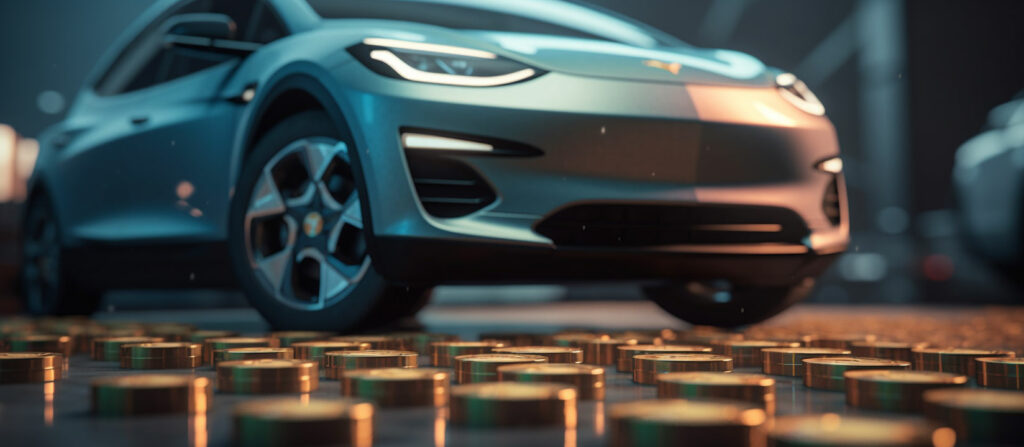
Can You Safely Use an Extension Cord with 240V Connectors for Charging?
If the extension cord is equipped with the appropriate connectors designed for use with 240V, it can be safely used for charging your Chevy Bolt EV. However, it’s important to note that using adapters at both ends introduces the risk of a 120V device being plugged into the cord. Always make sure to use the right connectors and to follow the manufacturer’s instructions.
Are Standard Domestic Extension Leads Suitable for Bolt EV Charging?
In general, standard domestic extension leads are neither safe nor suitable for charging a car. They typically lack waterproofing, which is essential for outdoor charging, and rarely provide the required power for effective charging. To ensure safety and efficiency, always use charging equipment that is specifically designed for your Bolt EV.
Can Your Chevrolet Bolt EV Charge at Tesla Superchargers?
In a recent development, Tesla has opened up its Supercharger network to other electric vehicle makers, making it possible for Bolt EV owners to charge their vehicles at these stations. To test this new feature, we took our Chevy Bolt to one of the 10 Superchargers that now support it and gave our vehicle a much-needed boost of Tesla juice5.
Why Should You Avoid Depleting Your Chevy Bolt EV’s Battery Completely?
Even though a low battery tends to charge more quickly, it’s generally best to avoid completely depleting your charge. Doing so can stress the battery and potentially shorten its lifespan. For the best battery health, try to keep your Chevy Bolt plugged in, even when the batteries are fully charged.
How Can Non-Professional Chargers Compromise Your Chevrolet’s Safety?
Using non-professional chargers can lead to serious safety issues and potentially compromise your vehicle. These devices may not adhere to the necessary safety standards and can expose your vehicle to risks like improper voltage, overheating, and even fire. Always use approved chargers for your Bolt EV to ensure optimal safety and performance.
What is the Amperage Limit for Most Plug-In Chargers?
Most plug-in versions of Chevrolet EV chargers, including the Level 1 charger that comes with the Bolt EV, have a limit of 40 amps. This amperage is sufficient for charging your vehicle at home using a standard electrical outlet.
What Do You Need to Achieve a Charging Rate of 48 Amps?
To achieve a charging rate of 48 amps, you’ll need a 60 amp circuit. Charging at this rate can significantly reduce the time it takes to charge your Bolt EV, especially if the battery is low. However, it’s essential to ensure that your home’s electrical system can support this load before attempting to charge at this rate6.
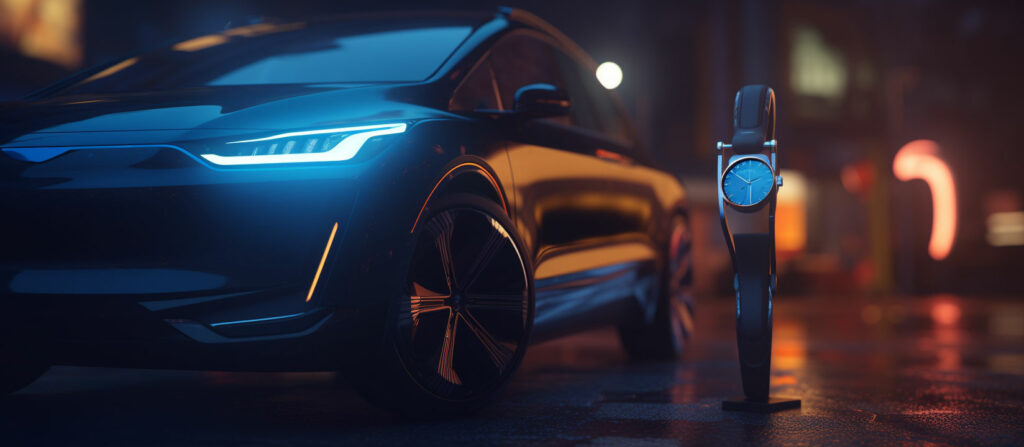
What Charging Speed Can You Expect With a 120-Volt Portable Charger?
Utilizing the 120-volt portable charger at 12 amps, you can recharge your 2024 Chevrolet Bolt EV’s battery in as little as 27 hours. This charger comes standard with the Bolt EV and is convenient for overnight charging or when you’re on the go and don’t have access to a high-voltage charging station.
How Does a 240-Volt Charging Station Improve Your Charging Time?
For faster charging times, a 240-volt charging station operating at 32 amps will recharge your Bolt EV’s battery in as little as 10 hours. These Level 2 chargers are an excellent option for home charging if you can install a 240-volt outlet.
How Has Level 2 Charging for Bolt EVs Evolved Over the Years?
When it comes to charging and range, Level 2 charging for Bolt EVs from 2016-2021 can support up to 7.7 kW. However, the 2022 models and beyond, including your 2024 Bolt EV, offer an upgraded capacity of 11.5 kW. Given the large 66 kWh battery of the electric vehicle, it’s crucial to have a powerful Level 2 Chevy Bolt charger to efficiently replenish the battery pack7.
What Charging Times Can You Expect for Other EVs Like the e-Golf?
While the focus here is on the Chevrolet Bolt EV, it’s worth noting that charging times can vary with different EV models. For example, when charging at home with a 7.2-kW charger connected to a 240-volt power source, you can expect the e-Golf to reach a full charge in less than 6 hours. For DC fast-charge locations, it is possible to achieve an 80% charge in under an hour8.
Can Bolt Electric Vehicles Charge at Tesla Superchargers?
According to Consumer Reports, Tesla Superchargers can now charge Chevrolet Bolt electric vehicles, expanding accessibility and convenience9. While this is great news for EV owners, always check to ensure compatibility with your specific vehicle model.
What is the DC Fast Charge Feature in the Bolt EV?
The 2024 Chevrolet Bolt EV offers an optional DCFC (DC Fast Charge) feature, enabling charging at CCS D.C. fast charge stations. However, it’s important to note that this option is compatible only with CCS stations and not CHAdeMO or Tesla Superchargers. Before attempting to use a fast charger, confirm that it supports the CCS standard.
To Sum Up
Efficient charging is a cornerstone of an enjoyable EV experience, and understanding your charger’s capabilities is key. Whether you’re using the portable 120-volt charger or have access to a Level 2 charging station, knowing how to best use these tools can significantly enhance your Bolt EV experience. Remember, using a charger with a higher current capacity is safe and can potentially lead to faster charging times. As EV technology continues to evolve, we can expect even more efficient and flexible charging solutions in the future.
Contents
- 1 Best plugin chargers for Chevy Bolt
- 2 Best hardwired chargers for Chevy Bolt
- 3 Chevrolet Bolt home сharging
- 4 How to choose a home EV charger?
- 4.1 How fast do you want to charge?
- 4.2 How many plugs do you have on your electrical panel?
- 4.3 Where would you like to place your electric vehicle charging station?
- 4.4 How important is it that you have a safe and reliable charger?
- 4.5 Is it true that an electric vehicle charging station will save me money?
- 4.6 What else can the charger accomplish?
- 4.7 How much does it cost to charge an EV?
- 5 AeroVironment
- 6 Chevrolet Bolt EV
- 7 Public Charging: Chevy Bolt Public Charging
- 8 Where to buy an EV charger?
- 9 We are here to welcome you with our EV charger installation
- 10 Where is the cheapest place to charge Chevy Bolt?
- 11 Comparison table
- 12 What Kind of Battery Does the 2024 Chevrolet Bolt EV Use?
- 13 How Far Can the 2024 Chevrolet Bolt EV Travel on a Single Charge?
- 14 How Long Does It Take to Charge the 2024 Chevrolet Bolt EV?
- 15 Can the 2024 Chevrolet Bolt EV Use Tesla Chargers?
- 16 What’s the Charging Speed of the Chevrolet Bolt EUV Compared to the Bolt EV?
- 17 Does the 2024 Chevrolet Bolt EV Come with a Portable Charging Cord?
- 18 How Do You Set Up Level 1 Charging for Your Bolt EV?
- 19 What Are Your Options for Charging Your 2024 Chevrolet Bolt EV?
- 20 Why Should You Avoid Using an Extension Cord for Charging Your Bolt EV?
- 21 Can You Safely Use an Extension Cord with 240V Connectors for Charging?
- 22 Are Standard Domestic Extension Leads Suitable for Bolt EV Charging?
- 23 Can Your Chevrolet Bolt EV Charge at Tesla Superchargers?
- 24 Why Should You Avoid Depleting Your Chevy Bolt EV’s Battery Completely?
- 25 How Can Non-Professional Chargers Compromise Your Chevrolet’s Safety?
- 26 What is the Amperage Limit for Most Plug-In Chargers?
- 27 What Do You Need to Achieve a Charging Rate of 48 Amps?
- 28 What Charging Speed Can You Expect With a 120-Volt Portable Charger?
- 29 How Does a 240-Volt Charging Station Improve Your Charging Time?
- 30 How Has Level 2 Charging for Bolt EVs Evolved Over the Years?
- 31 What Charging Times Can You Expect for Other EVs Like the e-Golf?
- 32 Can Bolt Electric Vehicles Charge at Tesla Superchargers?
- 33 What is the DC Fast Charge Feature in the Bolt EV?
- 34 To Sum Up
Reference
- https://www.energy.gov/eere/articles/how-does-lithium-ion-battery-work
- https://pluginamerica.org/understanding-electric-vehicle-charging/
- https://shop.tesla.com/product/j1772-adapter
- https://chargehub.com/en/electric-car-charging-guide.html
- https://techcrunch.com/2022/07/20/tesla-opens-up-supercharger-network-to-other-electric-vehicles/
- https://www.popularmechanics.com/cars/hybrid-electric/a22688627/charger-electric-car/
- https://www.evgo.com/learn/charging-chevy-bolt-ev/
- https://pod-point.com/guides/driver/volkswagen-e-golf-charging
- https://www.consumerreports.org/hybrids-evs/tesla-opens-superchargers-to-other-electric-vehicles/
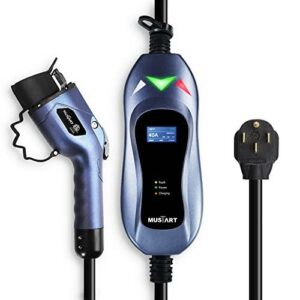
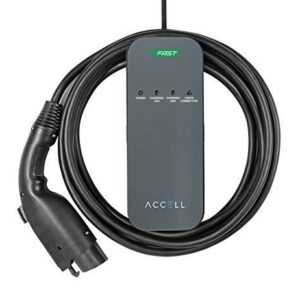

My Chevy Bolt constantly resets the charging rate and defaults to 8 amps, even though it’s charging at 12 amps.
If you toggle the parameter on the charging screen, it will only apply to the current charging session and then go back to 8A as in your case.
So setting this option in the location settings will help you.
To ensure battery longevity, should the battery be allowed to discharge to 30% and recharge to 80% as needed?
Also, do I have to charge to 100% every month to maintain balance?
Either way will work, but actively managing your Bolt’s battery temperature will be the most important factor in its longevity.
Is it possible to charge the Bolt with a portable generator? If so, how much power do I need to charge the Bolt?
Yes – it’s possible, you’ll need a generator of at least 9000 watts if you want to charge the car from scratch in less than 10 hours. But it all depends on the car’s charging electronics, and not all generators are the same
The setting returns 8 amps at all times. Why can’t I keep the default charge level at 12 amps?
Bolt allows you to remember the 12A setting only if location-based charging is enabled and the home location setting is set to 12A.
How do I set up my Chevy Bolt for “immediate” charging and “scheduled charging”?
You won’t need support from EVSE, the electric car charging software has a “home” location field – where it will charge the electric car exactly the way you want it to.
While charging, I noticed a red light flashing behind the green charge level indicator, but when I disconnected the charging cable, a beep sounded and the lights flashed. Why did this happen?
There is a setting to beep if the charging cable is disconnected before the door is opened. Most likely it was the car alarm.
Does it make sense to take the EV out of the garage in hot weather and put it outside so as not to drain the battery when the Chevy Bolt starts to cool itself?
That’s a good idea, you could also try turning the pre-conditioning on, but I think it will turn off after a while.
I’ve heard of only charging up to 80-90% because it’s better for the battery.
I really don’t want to reduce my miles unless necessary. Who thinks what?
The Chevy Bolt has its own reserve, so a 100% charge is more like 95% and an empty charge is 5%, so if you need to charge to 100%, don’t worry about it.
Will the RV TT-30 adapter work with my EVSE?
Of course it will work, but keep in mind that the TT-30 is 120V.
I used a Level 2 home EV charger with the doors locked, but I didn’t get any notification when the charger was disconnected.
Make sure your keys are out of your pocket if you want the charging alert to work.
I usually drive the Chevy Bolt for about 20% of my battery life.
Will charging to 90% every few days work or are there better options?
Charge after 4 days to 90%
it saves time from daily plugging in, but also minimizes the number of charging cycles, I think this is the best option.
Charging the Chevy Bolt from a regular outlet, sometimes it shuts itself off, starts making a beeping sound and the light turns red. Why is this?
Check the grounding at the outlet. Try plugging into a different outlet, this will probably help you.
I was told to charge the Chevy Bolt to 90%. Will it damage the battery if I charge the EV at 80%?
You can charge up to 80% on weekdays and 90% on weekends, I think that would be optimal.
After a few seconds, the Chevy Bolt stops charging and the charging status light blinks green for a long time. What could be causing this problem?
Don’t worry, this is normal, because Bolt has to activate charging to measure the EVSE charging rate and calculate the time to start charging so that it is finished by the set departure time. Use the Chevy Bolt Charging Time Calculator on this site to calculate how long it takes to charge your electric vehicle.
After a severe cold snap, the range has dropped from 225 miles to 145, How long must it take for the charging range to return to normal?
The range estimator works with both conditions and driving history. There are so many factors, so it’s hard to say when it will go back to normal.
Why is the minimum target charge level 40%?
Because this is the minimum amount of charge to keep the battery in optimal condition. It is also the minimum amount of charge required to charge a 12-volt battery
If the battery needs both conditioning and charging, do these happen simultaneously or sequentially?
Will happen at the same time if necessary, but conditioning will occur when necessary.
Does the Chevy Bolt need to be charged every day or wait until the battery reaches 50%?
If possible, charge your Chevy Bolt every night. The battery management system will maintain the battery by cooling or heating it as needed.
Is there an app where I can see the charging status of the Chevy Bolt?
I use my browser to go to my.chevrolet.com, so I can check the status of the Chevy Bolt.
After 50 minutes, charging stops, but if I open the driver’s door, charging resumes normally for another 50 minutes and stops again.
I had the same problem. Try checking the timer charging settings. Someone may have set something there that you don’t know about. Maybe the Chevy Bolt is hitting a time frame that is set to not charge.
Why do I have to change from the default 8 amps every time. Is there any way to make the default charge at 12 amps?
You will most likely have to select location-based charging and reconfigure your home location settings.
I have a tesla Mobile Connector and a teslatap. If I charge my Chevy Bolt from this charger, what will the charging rate be? Will it still be level 1 charging?
Yes, home charger for tesla will still be a tier 1 charge, you will be limited to charging 12 amps.
Can I keep the electric car on or turn it on while charging?
Yes, you can do that and no harm will come to the electric car.
Do most or all electric cars sold in the U.S. have the charging jack on the driver’s side?
There is no standard. You will find them on all four corners.
Why the Chevy Bolt does not fully charge over 200 miles. The last few charges have been steady at 165 miles. I understand that it’s winter, but still, is this normal?
Since it’s the cold season, your heater uses quite a bit of energy, and lithium batteries are much less efficient when the batteries are cold, so the electric car shows less.
The new Chevy Bolt series (beginning of 2021) is listed as an all-in-one device (Level 1 + Level 2) and will be capable of running on both 120V and 240V. But, yup, it’s about time they incorporated this functionality from the start.
If the outlet is 120V, it will be compatible with most appliances; however, if the outlet is 240V, it will not.
I believe that 120V is usually more than enough, which isn’t unusual.
It looks like the best option for me is to install a 240 outlet next to the breaker box. I called one local company and they said it would be around $300, but I may be able to find a cheaper option. I’m from Virginia. Has anyone else had this issue and what did you do?
I have read a lot of things but I still don’t understand how to do it. I have an un-used dryer outlet (NEMA 10-30) and the manufacturer’s charging cord that came with my Bolt. Can I use this to charge my Bolt at home? If so, what do I need to make it work? Thank you in advance for answering this question. I apologize if this question has been answered before.
you can buy a l2 evse for as little as $400 if you have a 240 volt outlet. this would allow you to charge your EV using that outlet and get about 240 miles per day. i bought an ev that can go 240 miles. i want to keep it charged all the time, not just for a little bit of charge. that’s why i went with a 40 amp charger instead of a level 1 charger.
Because it’s so chilly outside, I’m not sure whether my 120v EVSE is operating correctly today. I think the charge I put in last night might not be enough to keep the battery from freezing. So does that mean that the 120v EVSE is supplying enough power to compensate? I think my Bolt might start a few times during the night to keep the battery warm.
What length is the EV charging cable?
The length of the charging cable is approximately 25 feet
Where can I find a Chevy manufacturer?
The United States still has the largest number of production facilities. Chevrolet’s primary facility is located just outside of Motor City, Michigan. This facility has produced more than 13 million units.
What is the Chevy Bolt’s standard charging cable that is waterproof?
The TUV and CE certified Chevrolet Bolt Charging Cables are completely weatherproof.
How many amps does the standard charging cable for CHEVROLET BOLT have?
Bolt EV comes standard with a 120-volt charging cord. Bolt EV comes standard with a 240-volt 32-amp charging unit. This is the most convenient and fastest way to charge at home. However, professional installation is required.
Is it possible to use an extended cord with a standard charger cable for CHEVROLET BOLT?
Extension cords can be safely used
Very informative read! I always wondered how the Chevy Bolt EV battery performed. Now I know it’s all about the advanced lithium-ion battery. Keep it up!
Interesting stuff about using a Tesla Wall Connector for non-Tesla vehicles. But can I use my Tesla home charger for my Chevy Bolt, though?
So the Bolt EUV only supports up to 50 kW charging? I thought fast charging was all the rage with EVs these days.
Is it just me, or is that 9-hour full charge time with a Level 2 charger a bit on the high side? I’ve heard the Leaf charges faster.
So, if i get it right, a 240v charging station can recharge the battery in just 10 hours? thats pretty good.
whoa, didn’t realize the Bolt EV’s Level 2 charging got upgraded to 11.5 kW in 2022. i’ll need to upgrade my home EVSE.
Guys, using a charger with higher current capacity than needed is totally safe. Mind blown!
Just thinking out loud, wouldn’t a higher current capacity charger make for faster charging times?
Thanks for clarifying about extension cords and EV charging. Safety first, always!
lol extension cords and car charging… not exactly a match made in heaven, eh?
Hmm, so a car phone charger doesn’t drain much power. Good to know.
Big ups to Tesla for allowing non-Tesla EVs to charge on their Superchargers. More power to the EV revolution!
So the DC Fast Charge feature in the Bolt EV is only compatible with CCS stations. Got it, thanks.
Hey, no CHAdeMO or Tesla Supercharger support for the Bolt’s DCFC? That’s a bummer, dude.
Charging the Bolt with a Tesla Supercharger, now that’s something I gotta see.
hey great post! so i can use my bolt with a tesla supercharger right?
Extension leads for car charging, huh? Sounds like a recipe for disaster.
Always wondered about the energy consumption of a car phone charger. Glad you covered that.
Can’t believe the e-Golf can reach a full charge in under 6 hours with a 7.2-kW charger. EV technology is amazing.
Oh dear, I was hoping to use an extension lead for my Bolt’s charger. Good thing I read this post. Safety first!
Been using the Clipper Creek charger for my Bolt for about a year. It’s straightforward, no fancy features, but it does the job. I remember when I first got my Bolt, I was overwhelmed with the charging options. But after some research, I settled on this. No regrets. Anyone else find it as reliable?
I’ve had the same experience with Clipper Creek. It’s been solid for me. No Wi-Fi or app, but honestly, I don’t miss those features.
Thinking of getting the JuiceBox for my Bolt. How’s the set-up process? I’m not the most tech-savvy person, so I’m hoping it’s not too complicated.
I found the JuiceBox set-up pretty straightforward. The app guides you through it. Took me about 15 minutes to get everything up and running.
For those considering a Level 2 installation, I’d recommend getting a professional to assess your home’s electrical capacity first. I tried to DIY it and ran into some issues. Ended up calling Qmerit, and they sorted everything out.
I’m torn between hardwiring my Level 2 charger or going for a plug-in option. Any advice? I’m leaning towards the MUSTART Level 2 EV Charger.